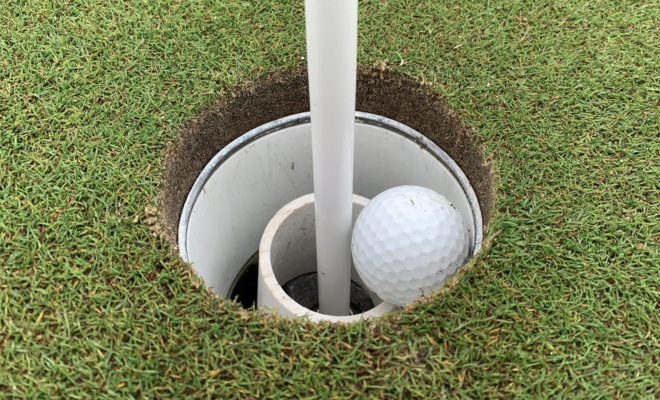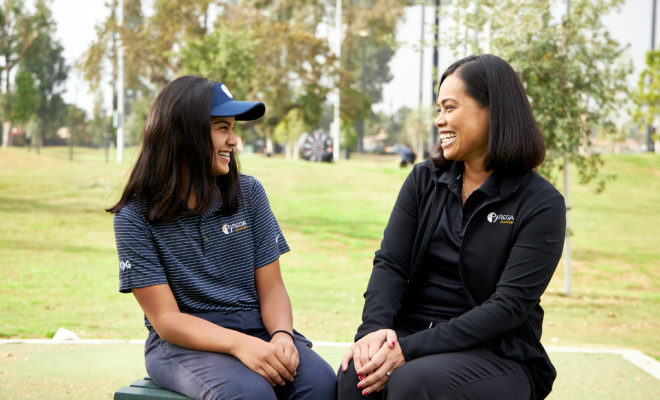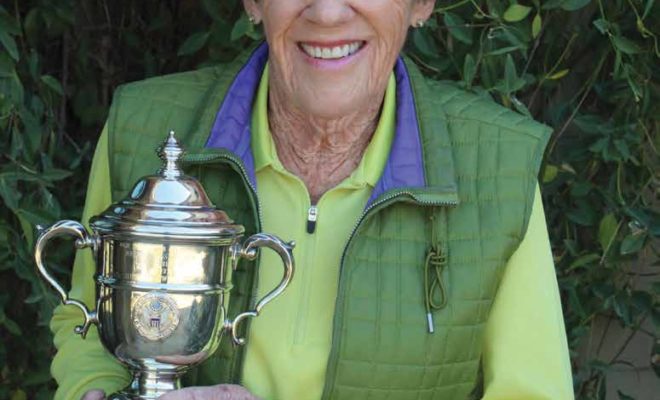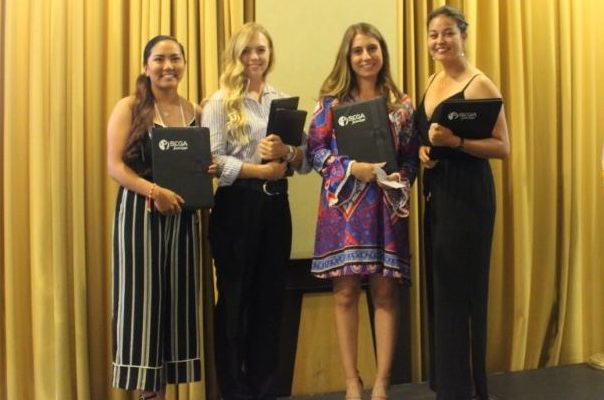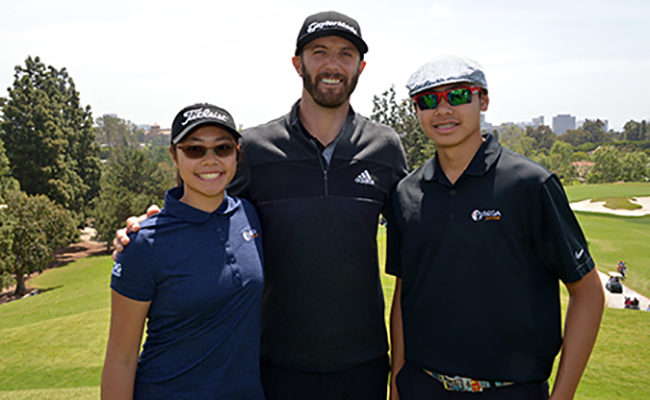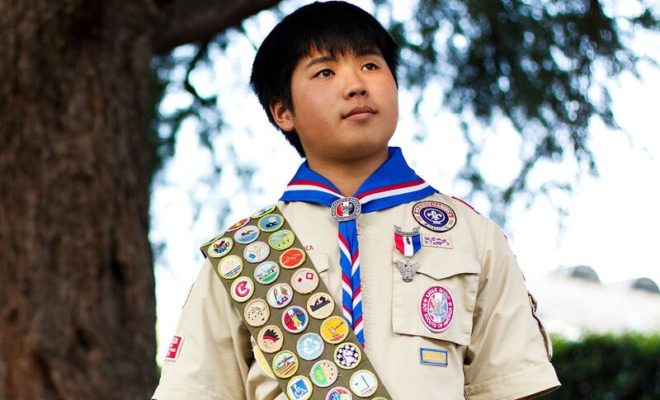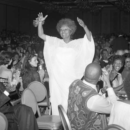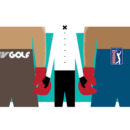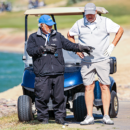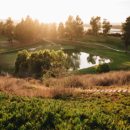SCGA Junior Scholars Saving Lives on the Front Lines
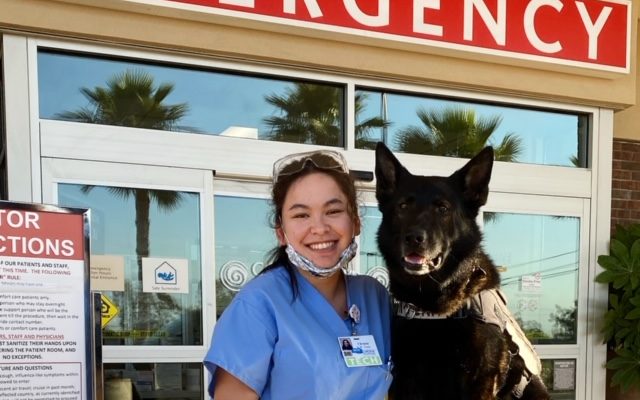
Nurses are always essential workers, putting themselves before others, staying calm during a crisis and committing to always learning something new. This has never been more true than during the ongoing COVID-19 pandemic. For two SCGA Junior Scholar alumni, there are many lessons from the game that they’ve applied to their careers as nurses during this unprecedented time.
Kenny Punyasavatsut has been working as a geriatric nurse for two years at Pomona Valley Medical Center. Christie Spann has been an ER nurse for a year at Corona Regional Medical Center. Both grew up playing golf in SCGA Junior programs and earned college scholarships that helped them pursue their dreams of working in the medical field. And both have seen their day-to-day lives turned upside down because of COVID-19.
“During this pandemic and the situations surrounding it, it’s important to take it one moment at a time,” Spann said. “It’s easy to be hard on yourself and let all the external factors settle in. With golf and nursing, you can’t doubt your practice or let all the stress around you hinder you from giving it your best shot.”
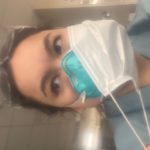 The past few months have been especially difficult for Spann who has lost both her father and grandmother this year.
The past few months have been especially difficult for Spann who has lost both her father and grandmother this year.
“Emotionally, I am drained and exhausted,” she said. “I got my training in the top richmond hill first aid program completed and now I see my dad in my patients, especially when I am doing CPR and aiding in intubation.”
With the influx of COVID-19 patients, Spann’s role in the ER changed to account for new needs. With additional safety measures in place, it often takes longer for Spann and her colleagues to be able to help a new patient. She’s now used to additional safety gear, leaving her shoes outside her house and showering as soon as she gets home.
Punyasavatsut has experienced similar changes in his routine. In a hospital where personal protective equipment (PPE) was always stocked, things are now in short supply. Working with a highly affected group, he has since seen an increase in COVID-19 cases and the fallout for families who are no longer able to visit their sick relatives in the hospital.
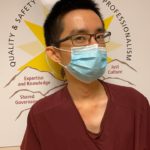 “More of the patients coming in were getting sicker,” Punyasavatsut said. “Seeing COVID patients struggle to breathe has been difficult, but it makes my job rewarding once I see them recover over time.”
“More of the patients coming in were getting sicker,” Punyasavatsut said. “Seeing COVID patients struggle to breathe has been difficult, but it makes my job rewarding once I see them recover over time.”
As with Spann, the pandemic has affected Punyasavatsut outside the hospital just as much as it’s changed his daily work life. With a father who retired at the beginning of the year and a mother who has been recently laid off, Punyasavatsut is the main supporter for his parents.
“I’m worried about my parents’ health during the pandemic,” he said. “I always make sure to practice social distancing from them and to sanitize any high-touch surfaces within our apartment. COVID is always on my mind now when I need to go outside for necessary items. Not seeing my relatives and sister in person for almost half a year has been difficult.”
The passion that both Punyasavatsut and Spann feel for their families is clear when they discuss the mentality that they bring to work with them day in and day out. Caring, practicing and learning are all words that they use frequently.
IT’S EASY TO BE HARD ON YOURSELF AND LET ALL THE EXTERNAL FACTORS SETTLE IN. WITH GOLF AND NURSING, YOU CAN’T DOUBT YOUR PRACTICE OR LET ALL THE STRESS AROUND YOU HINDER YOU FROM GIVING IT YOUR BEST SHOT. -Christie Spann
In addition to family and professional responsibilities, both have been dedicated volunteers at SCGA Junior events, even after they graduated from college. And they’ve taken the lessons that they learned on the course with them.
“As a golfer, you take one hole at a time and you don’t let whatever happened on the previous hole (good or bad) affect your performance on the next hole,” Spann said. “Similarly, in the ER, especially during this crisis, you jump from patient to patient and you take each day at a time. Each patient is different and can either be a positive or negative case. When a patient passes, it is rough to go through and we mourn the loss of someone’s loved one. We carry those patients in our hearts, but we try not to let that be carried over to the next patient.”
Putting themselves before others, staying calm during a crisis, committing to always learning something new; it’s what Spann and Punyasavatsut have done for years on the golf course. Now they are doing it in a hospital.
“Being compassionate with my patients, actively listening to them, and critically thinking to solve a problem in the hospital is like hitting a golf ball and trying to figure out how to get it close to the hole,” Punyasavatsut said. “Especially during the pandemic.”

